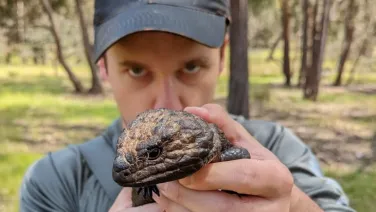E&E Webinar: Using Experiments in Nature to Study Evolution in Real Time
Jonathan Losos will speak on his career-long experimental research program manipulating the presence of lizards on small islands in the Bahamas to test ecological and evolutionary hypotheses.
Speakers
Event series
Content navigation
Description

Abstract
Jonathan Losos will speak on his career-long experimental research program manipulating the presence of lizards on small islands in the Bahamas to test ecological and evolutionary hypotheses. The results show that interacting lizards interact strongly and that these interactions can cause changes in selective pressures and subsequent evolutionary adaptation.
Biography
An internationally renowned scholar in the field of evolutionary biology, Jonathan Losos recently returned to Washington University, where he has deep roots, including as a member of the faculty from 1992-2006. He previously served as the Lehner Professor for the Study of Latin America, professor of organismic and evolutionary biology, and curator in herpetology at the Museum of Comparative Zoology at Harvard University.
Losos’ study of the behavioral and evolutionary ecology of lizards has taken him around the globe and firmly established his position as a leading international expert on the biodiversity of species.
Location
Please click the link to join the webinar:
https://anu.zoom.us/j/97527855692
Canberra time: please check your local time & date if you are watching from elsewhere



